Editorial: What will the "next generation" of MMOs look like?
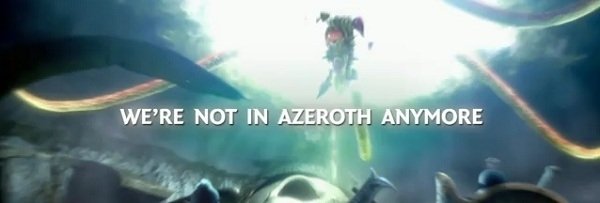
2011 is shaping up to be the year of the MMO: most of the big names we've been drooling over for the past few years are just around the corner. With the recent launches of DCUO and Rift still fresh in player's minds, a common question has been cropping up around forums and blogs: Is this the start of a “new generation” of MMOs? You can't blame the people for asking--just about every MMO ad and marketing campaign claims that their new game is “next-gen.” But what does that even mean? Let's take a look at four of the latest and upcoming MMOs--Rift, Star Wars: The Old Republic, TERA, and Guild Wars 2--to see if we can figure out what features and gameplay mechanics are going to define the next big wave of MMOs.
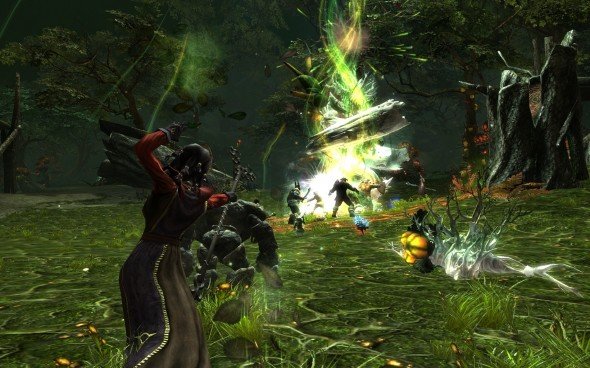
Rift is the first of the games we're talking about today to launch (it came out earlier this month) and has all of the systems required in our list above to consider it as a previous generation MMO. So what does it bring to the table to support it's claim to revolutionary greatness?
Its biggest claim to fame is definitely the rifts themselves. These dynamic group events take place all over the game world, and allow NPC armies to dynamically take over portions of the map at any time. If left unchecked, they can take out quest hubs and build fortresses. You may even find that your favorite Mudder's Milk vendor is briefly visiting the land of the dead instead of tending to his usual cart in the bazaar.
This is, in my opinion, easily the best version of a public quest system that's ever been made, and it's a lot of fun to have to battle your way through hordes of undead invaders just to hand in a quest. The game's questing system is really quite standard, although very polished. The crafting is similar to what we've seen in countless MMOs before, just with recycling thrown in. And while the PvP is fast-paced fun, it's mostly the types of content that we've seen before.
Verdict: A very fun game, but "revolutionary"? "Next-generation"? Nope, sorry. Not quite cutting it.
Guild Wars 2 - Dynamic Events and Combat Combos
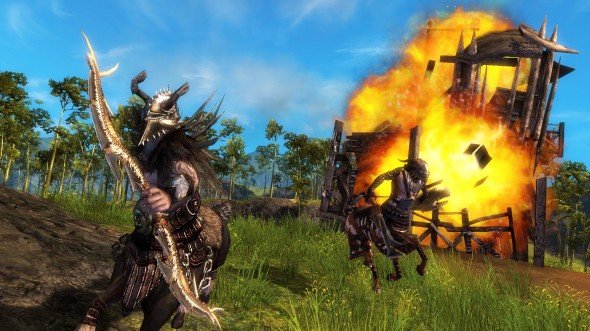
By hiding the same quest ideas in a different package and obscuring/removing/improving the “holy trinity” class system, Guild Wars 2 claims to give the player unprecedented flexibility. It's said that players will be able to bring who they want to adventure with, rather than worrying about making sure that they have a tank, healer and DPS--since multiple classes will be able to fill those roles. Wait, this is starting to sound familiar: isn't this what Rift's flexible soul system is supposed to do too?
I know, I know. There's the knockdown system, where players can fight their way back from the brink of death, Left 4 Dead-style. That's both innovative and interesting. Plus, the dedication to letting players heal themselves effectively removes some of the burden of the trinity class design. Two points for Arenanet.
The biggest gaming news, reviews and hardware deals
Keep up to date with the most important stories and the best deals, as picked by the PC Gamer team.
But the true revolution in GW2 is the dynamic event system. The game does away with traditional quests and quest hubs--no more running to a town, talking with 20 people to get tasks then running out to do them all. Instead, players will explore the world and be auto-granted quests as they discover events happening that need to be addressed naturally in the world around them. This is fantastic, as long as there are measures taken to stop people from griefing the events to limit everyone's progression.
There will also be some old-school quests, but they're mostly in the personal story, which itself is a great addition: adding more personalized RPG moments to the MMO.
Verdict: Revolutionary, and the next logical step in questing design.
Star Wars: The Old Republic - Let your grunt grind while you handle the story
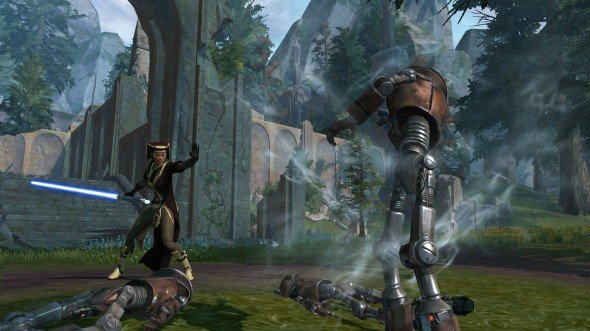
Speaking of story, this game's marketing team can't stop talking about "story". Want to a fun drinking game to play while listening to a Bioware designer talk about The Old Republic? Take a drink anytime they say the word story--you'll be passed out within a minute. "The STORY is an central and important part of TOR, just like the STORIES in our previous games. We believe that providing a strong STORY is key to keeping players invested in the world around them and the STORY of their character."
For all their talk, they're backing it up. From what I've seen, this is really the first MMO that's trying to incorporate the story into an MMO to the extent that you could mistake it for a single player RPG.
That's great, but LOTRO also has a great story (not as personal, but great nonetheless), and it launched four years ago. Voice acting? EQ2 and DCUO have already been there.
There are some real hooks in this game: the inclusion of housing from the get-go, companion characters that join you around the world, space combat (mini-games) and flexible roles in combat. The trouble is that it's all been done before. A lot of these features have been included in previous MMOs, but not all together, and not to the same extent.
Next-gen combat system? No way. I want to see lightsaber on lightsaber combat with movement and swings that matter. It does have Force power combinations that let a team of Jedi decimate their opponent--this is getting closer to next-gen, but it doesn't cross the threshold. But combat isn't the end all, be all of an MMO--it's simply one cog in the gears that make the game work.
The companion system borders on next-gen. Not only having them follow you around, interacting with your conversation choices and building a relationship with you, but also how it integrates into the crafting system. Your lackeys do most of the heavy lifting and boring time sensitive work so you can focus on the fun parts of the game. In the end, though, it's still just an automated crafting system.
Verdict: What we're looking at here is a top-of-the-line current-gen MMO, not something revolutionary and next-gen.
TERA - You shall not pass!
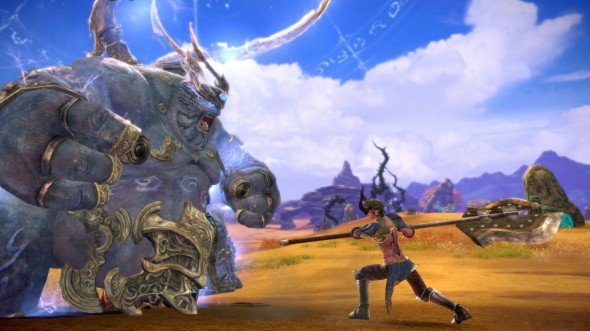
Let me blunt for a moment: TERA takes combat to a whole new level. First, honest-to-goodness collision detection. Tanks and off-tanks need to create a literal shield wall in front of the more squishy members of your group. Successfully position yourself and enemies simply can't get to your squishies. The combat in TERA is very action-oriented, and adds a great deal of excitement to the game.
I was lucky enough to play TERA at PAX Prime last September, and was blown away by the speed of the combat, and the necessity of movement around the battle field for my survival. Many monsters have "tells," such as leaning back on their hind legs before they do a big AoE stun, that require you to roll out of the way with your skill and swipe them from behind.
Sure, collision detection has been done before in Warhammer, and action-combat has been done in DC Universe, but not to this same level of fidelity--especially when you consider the entire combat package as a whole. This is new.
Verdict: It's frantic, alright, but is this the signal of the next generation of MMOs? I'm not so sure.
So now what?
So far, I haven't been convinced of the validity of this “next generation” phrase people are throwing around. I'm enjoying Rift tremendously, and it's THE fantasy MMO to play right now. I can't wait to play TOR, TERA and GW2--but none of them really shatter my understanding of what an MMO is. Right now, I think that Guild Wars 2 will come the closest to doing so, with its evolution of the event/questing system and innovations in the combat system. But, even then, I can't quite bring myself to call it a "next-gen" MMO just yet.
Each of them has evolved one or two game mechanics to an astounding level, but where's the game that does it for everything? That, my friends, will be when we finally have ourselves a next-generation MMO!

